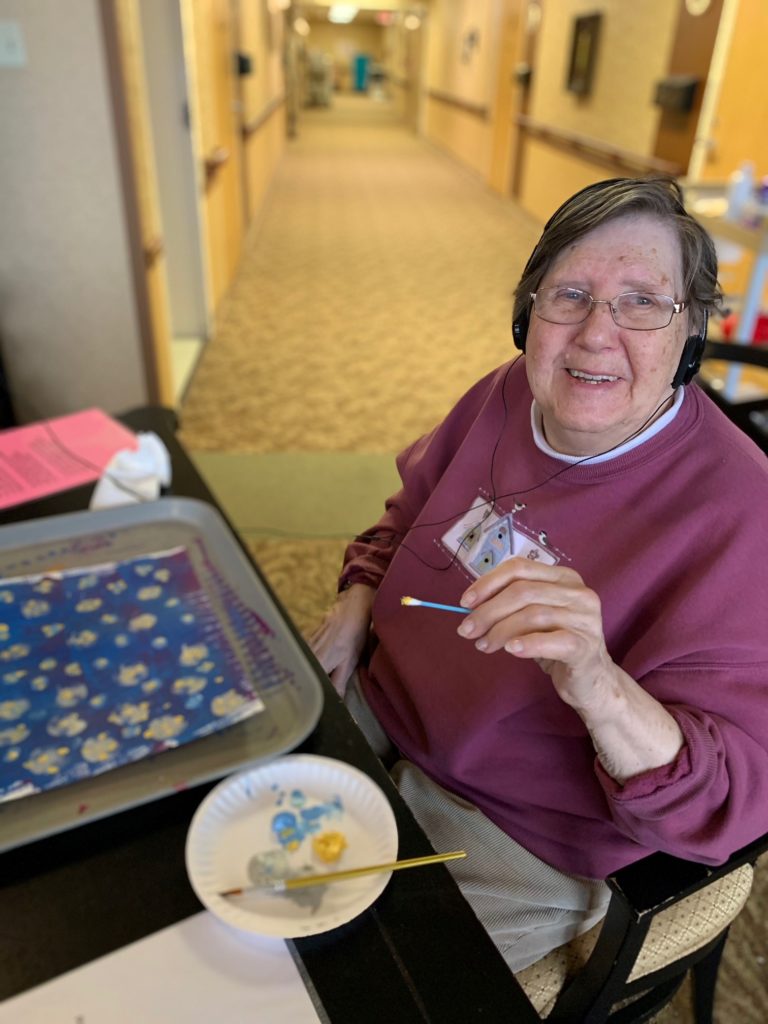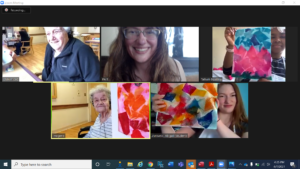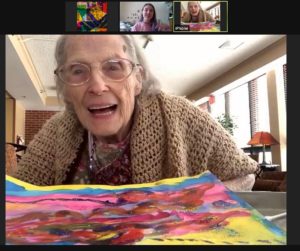The pandemic taught humanity a lot of valuable lessons, but arguably the most important was how it taught Chapel Hill Community to adapt quickly in providing successful activities and life enrichment to its seniors. 
John Wooden, one of the winningest NCAA basketball coaches said, “If we fail to adapt, we fail to move forward.” Over the course of the pandemic, Reverend Erin Proie, chaplain at Chapel Hill Community in Canal Fulton, and three local volunteers did just that. Together they created a virtual version of Opening Minds Through Art (OMA), an intergenerational art-making program for older adults with neurocognitive disorders, such as dementia. OMA, typically done in-person with a facilitator and a class, engages adult students by building friendships between facilitators and residents with dementia through art making. Together, the three OMA facilitators co-founded Promoting Art and Intergenerational Relationships (PAIR). worked with three art therapy students from Ursuline College to pilot PAIR, a 14-week program where the co-founders interact with the students and residents at Chapel Hill Community.
Over 14 weeks, three Chapel Hill residents per week worked on a total of eight projects. The students led the art projects entirely using the virtual platform, Zoom. Reverend Proie set up the iPad and supplies for the residents so when the Zoom meetings began, they were ready to get creative.

“It has been amazing for our residents who have been able to participate and very meaningful to the students and their college education,” said Rev. Proie, “We have been learning and adapting along the way, going from being set up for one-on-one in the rooms during quarantine, to being set up two in a room with distancing and the use of break-out rooms on Zoom.”
Chapel Hill and PAIR are nearing the end of this round of programing with one project remaining. During their final week, they plan to celebrate a successful pilot program by having tasty goodies.

Ashlee Cordell, PAIR co-founder, said the intergenerational relationships between the students and residents were profoundly successful. “Since meeting with [the resident], I have felt more hopeful and inspired, which were two things I desperately needed.”
